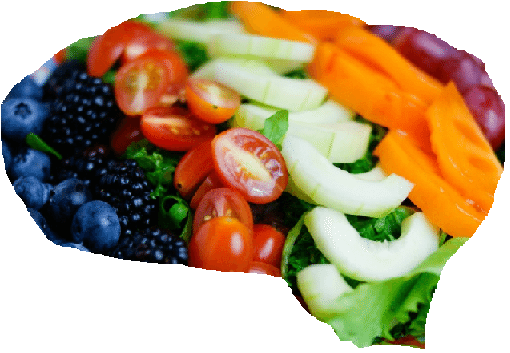Brain Food for Indian Children
By Madhurie Singh, January 07, 2015

Brain is the most important organ of the body after the Heart; and rightly said, it is the Powerhouse of the body. The brain is responsible for memory, movement, hunger, perception of hot/cold and many other physiological/chemical processes in the body.
It’s the beginning of a new term at school and its time for your little ones to gear up for some learning and creative thinking. Right Nutrition plays a vital role in brain & memory development. Remember, Food Is Medicinal & Supplemental (FIMS) and is loaded with the ability to work more efficiently than a brain tonic/ memory pill. Its time we use Brain-FIMS as a part of a child’ diet.
Memory, alertness, concentration, lethargy, sleepyheads are all results of a child’s eating habits. As said earlier, food can make or break an individual. Good food fuels the brain and keeps it active enough to function optimally throughout the day.
Wrong eating habits cause lowered brain activity that reflects in a child’s overall performance at school.
Brain and the nervous system are kept healthy by eating the following foods regularly;
Walnuts
Walnuts along with other nuts like almonds, peanuts, pecans and cashews; are a power house of energy, omega 3, magnesium, manganese and copper that help in maintaining brain function & nerve function to the optimum level. A regular dose of nuts in your child’s diet ensures his improved attention span and quick learning abilities.
Milk
Milk and milk products like yoghurt, cheese and cream are rich in calcium, magnesium and phosphorus that enhance the nervous activity, thus promoting efficient memory, creative thinking and increased attention span. Milk combined with honey also stimulates the production of a ‘brain relaxer’ chemical called ‘serotonin’ that calms the nerves and controls irritable, over-active children.
Turmeric
Commonly used in the Indian curry preparation, Turmeric (haldi) is a source of a phytochemical called ‘curcumin’ that is proved to prevent Alzheimer’s and enhance memory. Curcumin prevents free radical damage, stops degeneration of the brain cells and helps heal worn out brain cells. Other spices having similar effects are cinnamon, cumin and cardamom.
Greens
Green leafy vegetables like spinach, methi, onion leaves, kale, wheatgrass; and other greens like broccoli, bittergourd, ridgegourd and sources of natural chlorophyll, potassium, calcium. Chlorophyll is directly used by the body to form haemoglobin in the blood. Haemoglobin carries oxygen to the brain, thus, ensuring that the brain is alert and active at all times.
Seafood
Seafood especially salmon, tuna and crab provide a rich supply of omega 3 and omega 6 fatty acids along with good quality protein. These in turn provide DHA that is a chemical essential for brain development in young children.
Banana
Banana and other fruits like jackfruit and custard apple provide ample amounts of potassium, selenium, copper and calcium that are food for the nerves. Since the brain comprises of more than 30,000 nerves, it is essential to maintain nervous health for a healthy brain.
Avoid
Refined sugar, preservative/ additive containing food, refined flour, fried food, colas and synthetic flavored drinks are the most detrimental to nerve and brain health.
Banana Walnut Smoothie
This is a perfect ‘Memory smoothie’ that can be included for breakfast to kick-start the day.
Blenderise 1 ripe banana, 2 walnut halves, 200 ml milk, ¼ tsp cinnamon powder. Add a dash of honey if required. Serve immediately or chill for later use.
To summarize, 1-2 servings of brain foods in the day ensures a healthy brain & memory development for your little one.
Make Healthy Eating Fun!!
ABOUT DHVANI SHAH
Dhvani Shah is a naturopathic nutritionist, speaker and author of “Don’t just
feed…Nourish your child”, “Super foods for Super Womanhood” and “Jinahaar”. She
has done extensive research in traditional diet therapies and naturopathy and its
relevance in modern context and is pioneering drugless healing and well being
through her unique approach – FIMS (Food Is Medicine & Supplement). She runs the
“FIMS clinic” which supports a body-mind-spirit approach. Dhvani specializes in
Woman and Child Nutrition by developing specialized nutrition programs,
conducting workshops, formulating nutritious recipes and writing books/ newspaper
articles/ columns/blogs.






You write here to avoid refined sugar..what is its substitute as in hot beverages or while cooking we can't use jaggery / honey. They counter heat. So we hav to add sugar.
I will do an article on sugar too.
Add honey at the end of the whole process. Where possible you jaggery and honey. Use Stevia leaves. Use molasses where possible. If there is absolutely no substitute then only use white sugar. The idea is to minimise using sugar.
Login is required
Don't have an account? Sign Up